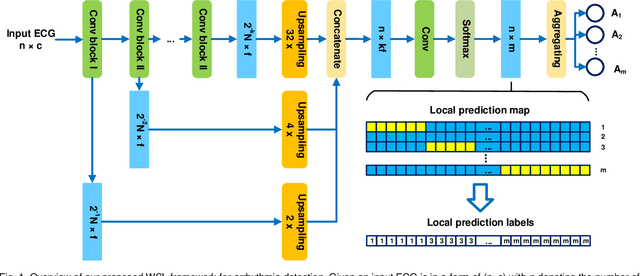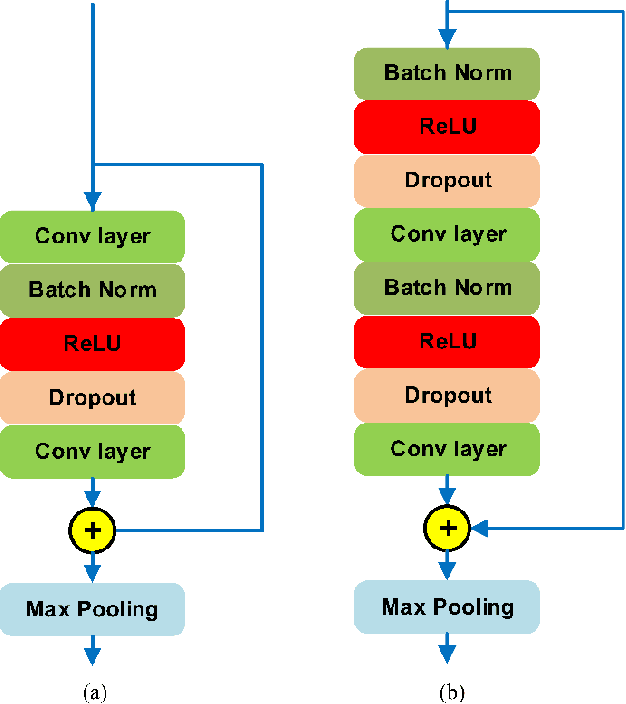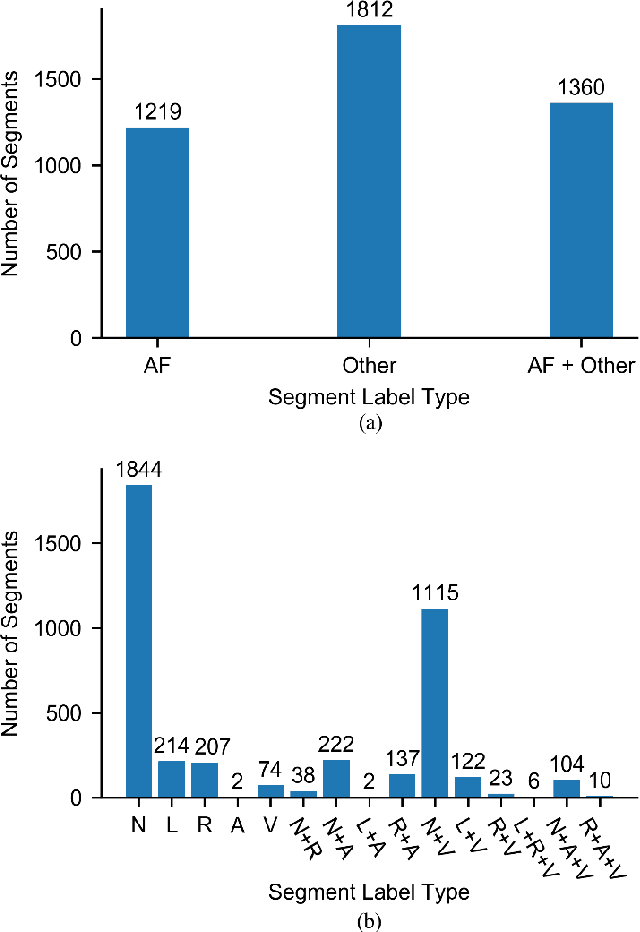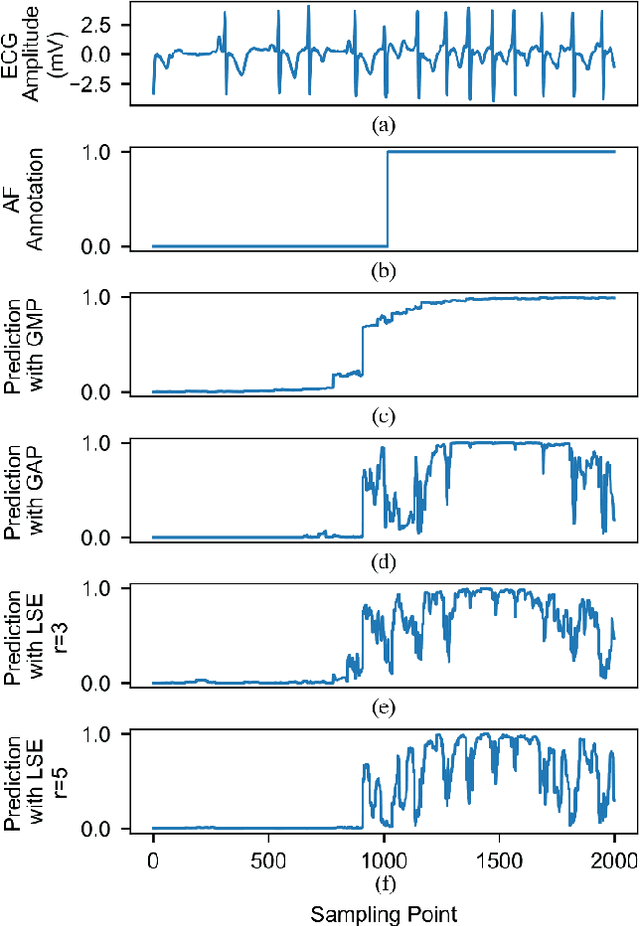Yongfeng Yuan
Weakly Supervised Arrhythmia Detection Based on Deep Convolutional Neural Network
Dec 10, 2020



Abstract:Supervised deep learning has been widely used in the studies of automatic ECG classification, which largely benefits from sufficient annotation of large datasets. However, most of the existing large ECG datasets are roughly annotated, so the classification model trained on them can only detect the existence of abnormalities in a whole recording, but cannot determine their exact occurrence time. In addition, it may take huge time and economic cost to construct a fine-annotated ECG dataset. Therefore, this study proposes weakly supervised deep learning models for detecting abnormal ECG events and their occurrence time. The available supervision information for the models is limited to the event types in an ECG record, excluding the specific occurring time of each event. By leverage of feature locality of deep convolution neural network, the models first make predictions based on the local features, and then aggregate the local predictions to infer the existence of each event during the whole record. Through training, the local predictions are expected to reflect the specific occurring time of each event. To test their potentials, we apply the models for detecting cardiac rhythmic and morphological arrhythmias by using the AFDB and MITDB datasets, respectively. The results show that the models achieve beat-level accuracies of 99.09% in detecting atrial fibrillation, and 99.13% in detecting morphological arrhythmias, which are comparable to that of fully supervised learning models, demonstrating their effectiveness. The local prediction maps revealed by this method are also helpful to analyze and diagnose the decision logic of record-level classification models.
 Add to Chrome
Add to Chrome Add to Firefox
Add to Firefox Add to Edge
Add to Edge